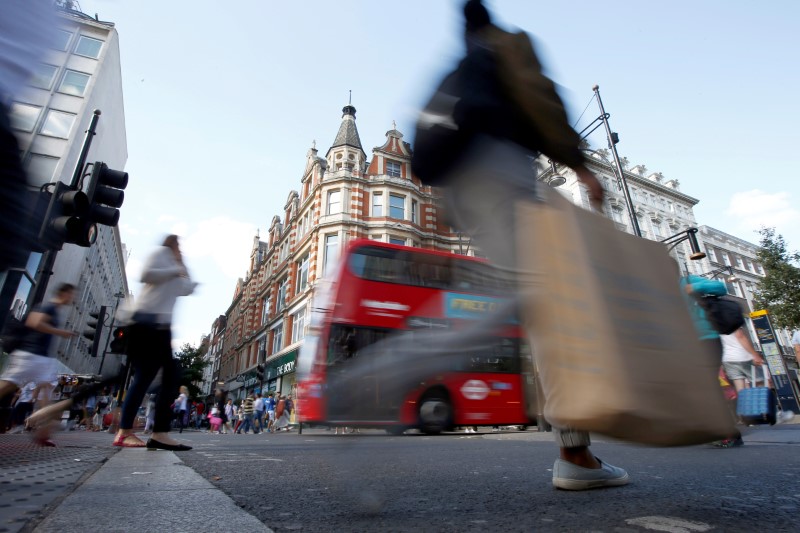LONDON (Reuters) - British shoppers increased their spending in September at the fastest pace so far in 2017, excluding an Easter-related surge in April, but much of the rise reflected higher prices for food and clothing after the Brexit vote, a survey showed.
Retail sales grew by an annual 1.9 percent on alike-for-like basis, which strips out changes in store size, the British Retail Consortium said, up from 1.6 percent in August.
The increase follows other signs that consumers in Britain are adapting to the rise in inflation caused in large part by the fall in the value of the pound after the referendum decision to take the country out of the European Union in June 2016.
The Bank of England, which has signalled it is close to its first rate hike in a decade, is expecting a pick-up in spending.
The BRC said growth in total sales last month slowed slightly to 2.3 percent from 2.4 percent in August but remained stronger than in most months so far this year.
However, consumers were not displaying much confidence in their shopping choices.
"Spending is still being focused towards essential purchases with consumers buying their winter coats and back-to-school items, but shying away from big-ticket items such as furniture and delaying the renewal of key household electrical goods," BRC Chief Executive Helen Dickinson said.
On a like-for-like basis, food sales were up 2.5 percent in the three months to September while non-food sales were up only 0.5 percent, the BRC data showed.
The Confederation of British Industry said last month its measure of retail sales showed unexpected growth in sales to a two-year high in early September, again helped by strong food and clothing sales.

Accountancy firm BDO said on Friday that British shops enjoyed their biggest jump in sales in more than three years in September.